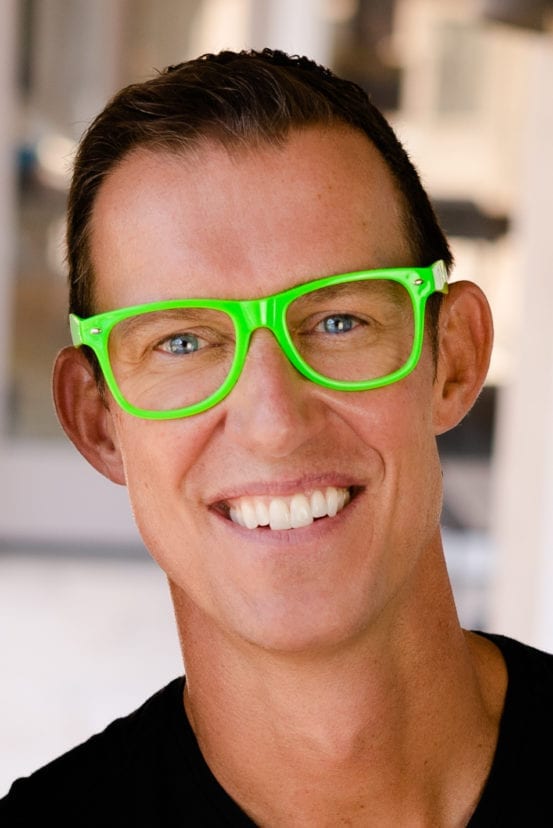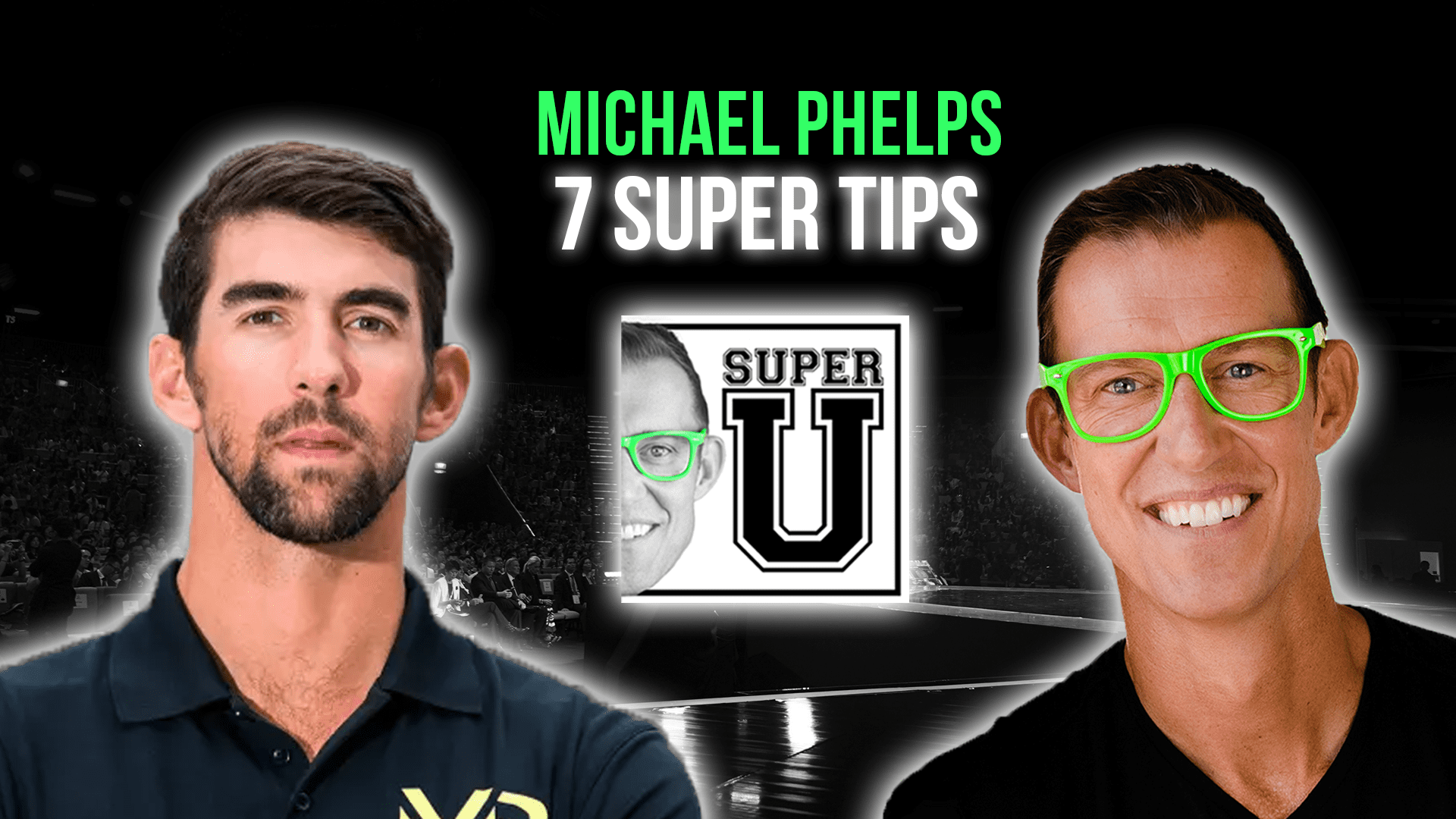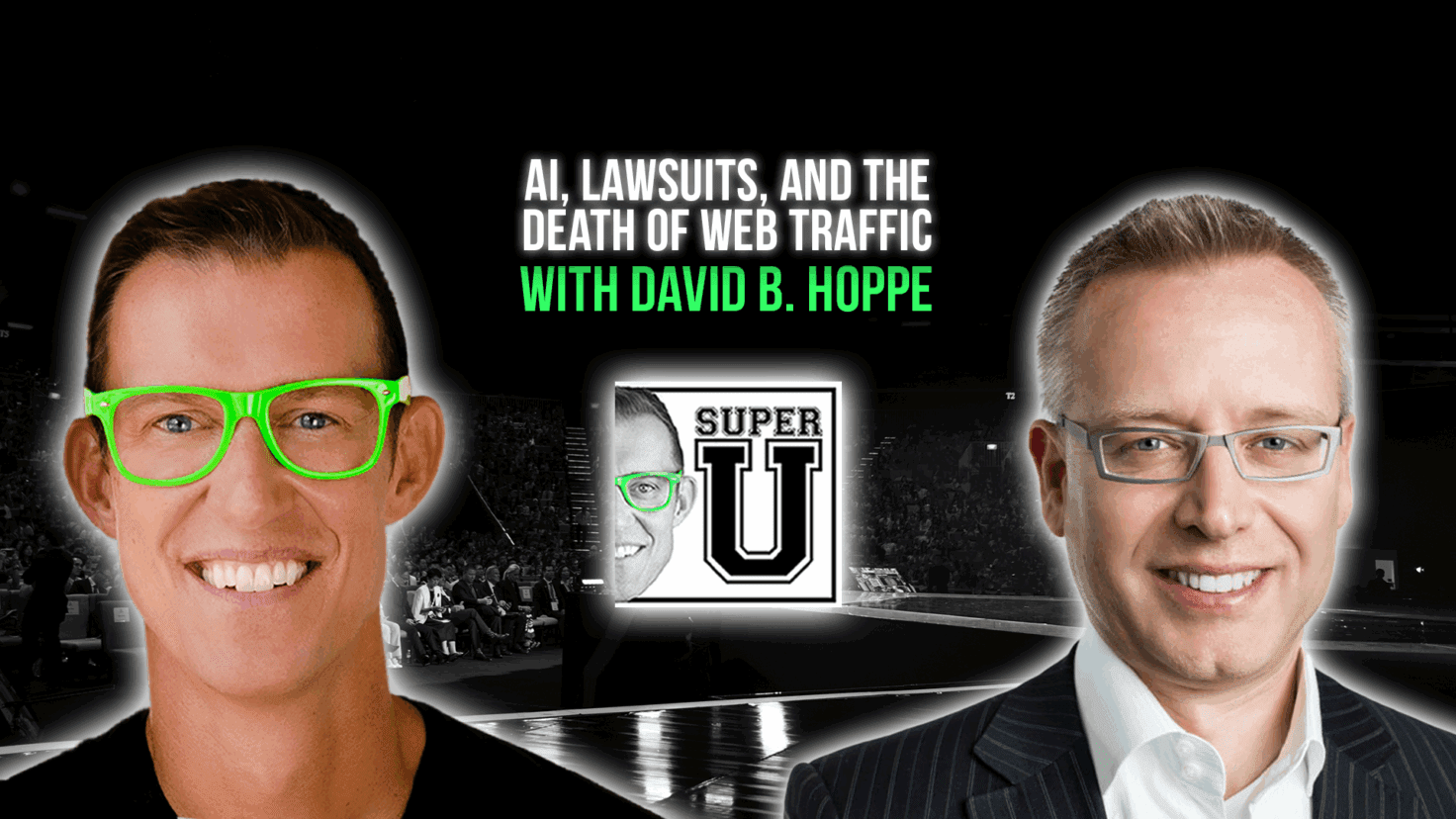Super U Podcast | 7 Super Tips with Michael Phelps
Michael Phelps, American Swimmer, 23-time gold medal winner, and most decorated Olympian of all time gives us insight into his struggle with mental health, how he trained every day, and what goes through his mind at a swim meet.
5x #1 Bestselling Author and Motivational Speaker Erik Qualman has performed in over 55 countries and reached over 50 million people this past decade. He was voted the 2nd Most Likable Author in the World behind Harry Potter’s J.K. Rowling.
Need a sneak peek? Below are the main takeaways from the episode.
Super U Podcast | 7 Super Tips with Michael Phelps:
[3:03] Tip #1
“My two older sisters, they’re five and seven years older than I am. And they were swimming all the time. My mom was in public education, and then going back for a master’s and we were always at the pool. So for me, I was watching them swim, and I watched my sisters get better and better. And they started traveling throughout the world. And my middle sister was third in the world and first in the nation at 13. And I was like, Well, that seems really cool. Like, I want to do that. And when I got with my coach and I was 11 years old, and he sat down with my family and said that I could be an Olympian in four years if I really wanted to. And at that time, I was playing baseball, lacrosse, soccer, and swimming. And at that point, my mom was like, Okay, well, if you want to do all of them, go ahead. And my coach said, Well if you want to make the Olympic team, you got to focus on one. So I said, Okay, fine, let’s do it. You say I can make the Olympic team. That’s what I want to do. Let’s go. And for some strange reason, at that very moment. I trusted this guy and decided to say let’s go and do it. And for some reason, we went on this mission. And four years later, he put me on my first Olympic team. So for me, I think, since I’ve stepped away from the sport over the last two years, I think I’ve been able to understand more of really what happened throughout my life and why things happen throughout my life. And I think what I kind of made up about that situation was he was somebody who trusted me and somebody who really thought that I could do something I put my mind to and he believed in me and I think right then and there that’s what I was looking for because my parents divorced at a very young age and he was kind of like a father figure who really believed in me and I think that was something that that I was really looking for. Then and I decided to say, Okay, let’s do it. And we did it together. And I think from that moment forward, we just decided that we could do absolutely anything that we put our mind to.”
[5:55] Tip #2
“So I came back from the 2000 Olympic Games as a 15-year-old and after the Olympics, it’s usually when people take time off where they take a break, they relax for three to six months, and then they get back into it. For me, I was into it. The next day after the final 200 fly. I was in fifth place, I was three-tenths of a second out of a medal, I was upset. So I used that as motivation leading into the next year. And the very first day that we practice, my coach put WR on the top right-hand corner of the paper, WR meant world record as a 15-year-old kid. I was like, Oh, yeah, I know what this is. Why is this? What’s this doing here? Like? Why are you putting this in the upper right-hand corner? It’s like, we’re gonna break a world record in six months. And I was like, Alright, cool. Let’s try it. Sure enough, six months later, I break my first world record. So I’m like, okay, like this is starting to get really cool, like starting to get fun.”
[7:22] Tip #3
“I mean, for me, when when I got to a summit, there’s nothing that I can control at that point, right I can, I can control what I do and how I prepare sort of getting up behind the block and just racing, I can’t control it, anybody else does. So for me, I want to know how the race could go. How I don’t want the race to go. And in a perfect world how the race should go. Because it all goes back to preparation. If you’re not preparing yourself before the meet, you’re not going to get the time you deserve. So for me, I have to make sure I’m doing all the work leading up to a big meet so that I get behind the block. And I don’t have to think about anything else. I’m not worried about how I prepared. So I started visually, I guess, visual visualizing at like 1314. Just so everything around me was taken care of when I got to a meet. So I could be completely relaxed. So when I put my headphones on, all I’m thinking about is music, I get to go up and just do what I practice to do all of those countless hours of staring at the black line to the bottom of the floor. That was for this moment. So I just never really thought when I got behind the block and let everything do what was supposed to happen. If I didn’t get the results that I didn’t that I wanted, then I would just go back to the drawing board. And that’s really just how I worked my whole life. But I mean, visualizing just, it just mentally prepares you and you can kind of check that box off. And I think that’s what we wanted to do. Every time we got to a major international competition. We wanted to check off as many boxes as we could. Because if we did that then what else do we have to worry about? Everything else is just going to happen naturally like it should.”
[10:29] Tip #4
“We all go through things, we all go through struggles, right? There’s probably everybody in this room that goes through struggles the same exact way. And I think that’s what, that’s what we all have to realize, like, yes, like, I’ve been successful in what I’ve done, but it doesn’t make me superhuman. It just makes you know, for me, I was very goal-oriented and very passionate about what I was doing and wanted to be the best. So, you know, for me, I was able to do that. But I mean, I put my pants on just like everybody else does. So it’s like it’s something that every single person goes through and you know, for me, I was sick and tired of compartmentalizing things that I didn’t want to talk about. And I just opened up and honestly, since then, my life has become easier. I always make the joke. I was like, Yeah, I learned to communicate at 30.”
[12:22] Tip #5
“I think looking back on my career, I think I was probably hiding a bunch or compartmentalizing a bunch of the stuff that I was going through just because I think I was always taught that we weren’t allowed or weren’t supposed to show weakness or something like that, ever. Because of being an athlete, you’re supposed to be strong and be able to push through anything. So I think, you know, my struggles carried on through my career, and I hit them really well. But I think really going into the last Olympics, I was just ready to kind of open up and let everything come out. And for me, you know, this is something that that is very important. And there are so many people that struggle from very similar things that that I go through and still go through.”
[13:36] Tip #6
“When I said I wanted to win a gold medal is basically half the people in the swimming world thought I was absolutely crazy. And nobody could ever do something like that. But for me, I was somebody who believed in somebody who believed in the process of getting there. I knew it wasn’t going to happen overnight like I said before, but every little small thing that we did was a small stepping stone in order to, in order to even be able to have that chance and that opportunity to do what I did in 2008. So, you know, when I say from 2002 to 2008, was basically trial and error. So for me in 2002 that’s really when I started amping up my event schedule where I was swimming four to five individual events and having a couple relays that Pentax World Championships, major international competitions throughout those that timeframe. Because at that time at the Olympic Games, that’s tough I mean, that’s where I think the real truth comes out. Because I think there are a lot of people who are very talented who can make it there. There are very few people who can deal with the pressure and the stress that happens when we’re there. So that’s why I say we had to make sure that we were physically emotionally mentally ready because I had to be ready to be able to kind of manage my emotions through that week. Yeah, winning a gold medal is absolutely incredible. There’s nothing better than standing on the podium listening to the national anthem play after you just want to go medal. But for me, I’m somebody who I knew that I had seven other events after the first day. So I have to throw that in the back of my head, I got to throw that race out, even though if I, you know, even like, you know, eight, I broke a world record one goal, you know won my first gold medal like, I was like cool like things are starting really well. So I have to put that behind me to then get ready for the next race. And on top of that, I have to make sure I’m eating the right amount I’m sleeping the right amount My body is as fresh as I can possibly be. So that means sitting in an ice tank, getting massages, getting stretched all of these small things that end up adding up to the major end result. And, and that was something that we learned through that process. So for us, we always also tried to compare every day as a new challenge, right every day is a challenge is is is a day that we can prepare ourselves even more. So for us it was we would call it putting money into the bank. So at the end of the year, when we had a major international competition, we could withdraw that money that we had saved throughout the year. And look, I’ll be the first one to tell you, there were a lot of days where I did not want to get out of bed. And I guarantee you if I asked the question here if everybody is excited to get out of bed every single day, if I saw a hand, I’m going to blatantly call you a liar. Because we all know that is far from the truth. But if you have those little small goals, those little small things that get you excited when you don’t want to, it’s going to make it even better and even easier. At the end when you’re getting ready for a presentation or the end of the year or this or that whatever event you’re leading up to. It’s going to make it so much easier. And I think if you look at the greats and anything, in any walk of life, the greats do things when they don’t always want to. And that’s the separation. For me. That’s what I found. Because I can sure as hell tell you that there were days where I hated my coach. There were days where we got in fights, we got in arguments, we couldn’t stand what we were doing, I would do things purposely to piss him off. But that’s a different story. But, you know, I think that was really how we worked like he was somebody who was so perfect for me that if I were to swim for anybody else, I would never would have had the chance to do what I did, because he challenged me in ways and forced my mind to think differently.”
[17:48] Tip #7
“I’ve been very fortunate to be surrounded by a group of amazing people who have helped me get to where I am today. You know, obviously, my family is massive. My coach has a huge influence. My agent is I mean I have so many father figures and he is like a father figure and my coach is like a father figure. So for me, I’ve been very fortunate to have a lot of powerful people around me and to help mold me and helped me learn more and more through my journey. So for me, it’s honestly I was I think the reason that it worked so well is because I was open to hearing what they said or hearing what they were trying to help me understand. And that’s something I think went a long way and really helped me become who I am today where now I actually like who I am. You know for a while it was hard for me to have self-confidence and self-love. And now I’m able to look at myself in the mirror and love what I see.”
Click here to subscribe and listen to the full episode.
Connect with Michael Phelps:
Facebook: https://www.facebook.com/michaelphelps
Twitter: @MichaelPhelps
Website: https://us.michaelphelps.com/

To ensure you don’t miss future episodes, subscribe to our podcast by clicking here >> Super U Podcast. We hope these tips help unlock and unleash your inner superpower!
The Super U Podcast is hosted by #1 bestselling author and Motivational Speaker Erik Qualman.





